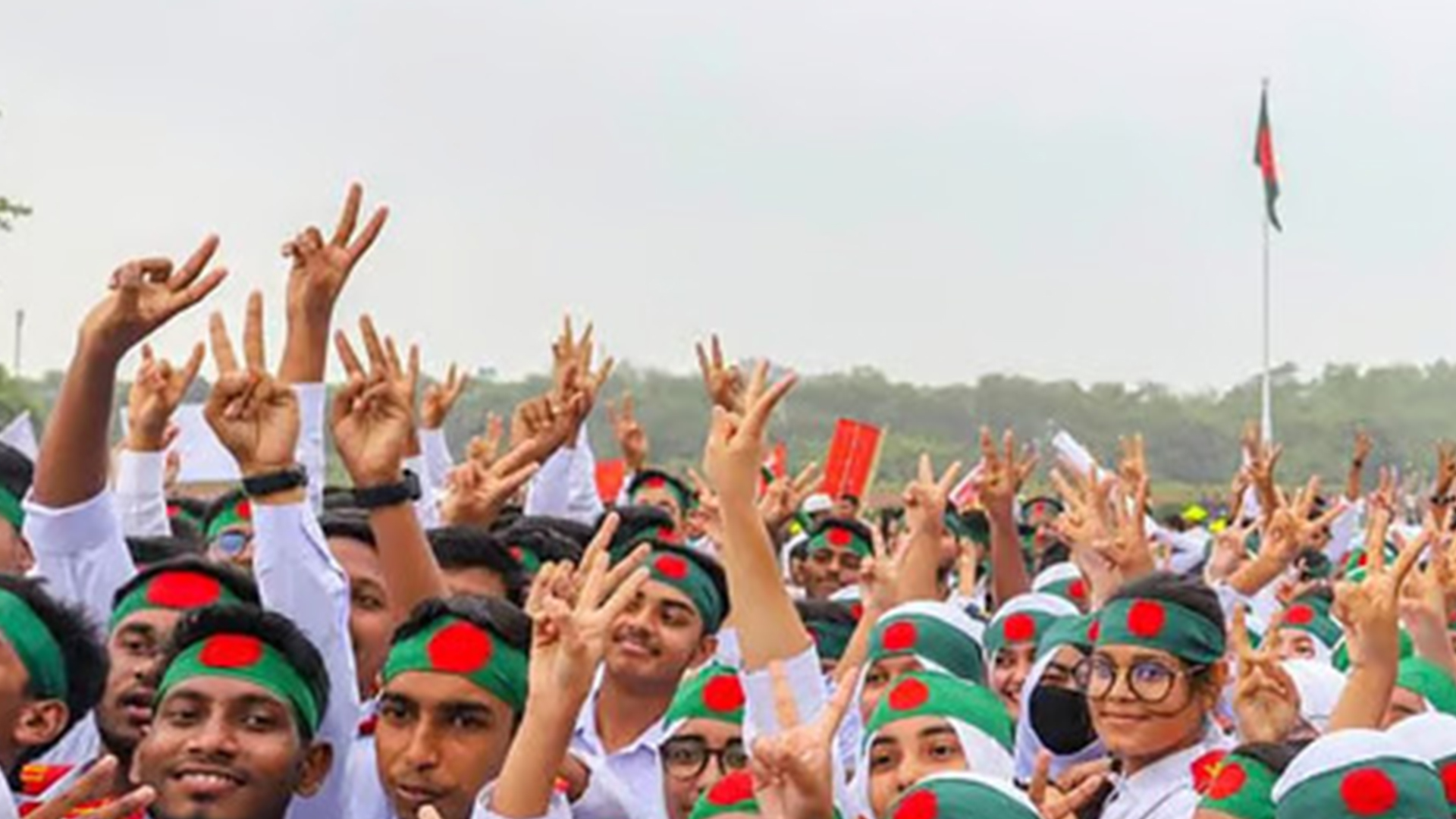Today’s youth in Bangladesh have not experienced the liberation war firsthand; they have only learned about it by hearing or reading about its history. From now on, it is about assessing their accuracy according to what they have read. Has the previous generation adequately portrayed the history of the liberation war? We may have misinformed the younger generation by giving them a distorted historical narrative. Youth must closely monitor this subject. Youth and individuals of the new generation should know the precise historical facts.
The liberation struggle is a conflict to free the Bengali nation from exploitation. A nation’s dream symbolises the essence of the struggle for independence. The dream inspired the country to establish a sovereign state separate from all other authorities. To cultivate a democratic society free from exploitative practices, we must nurture the unifying spirit of the Bengali people.
Throughout the thousand-year history of the Bengali nation, the liberation war of 1971 is widely regarded as the most significant event. Our independence was achieved after a nine-month war in 1971, which resulted in the loss of dignity for many women, the sacrifice of three million martyrs, and many additional sacrifices.
The triumph was accomplished on December 16, 2019, by repelling the Pakistani invaders after 23 years of turmoil and nine months of violent battle. Bangabandhu Sheikh Mujibur Rahman, a prominent figure in Bengali history, transformed the vision of Bengal into a tangible achievement.
The liberation war is a significant and enduring event in Bengali history, symbolising the nation’s greatest glory and serving as an evocative tale of triumph. Since its inception, rulers have exploited the Bengali nation, leading to innumerable sacrifices. With the birth of Bangabandhu Sheikh Mujibur Rahman, Bangladesh might have gained independence. With the leader’s birth, we achieved today’s Bangladesh. Bangabandhu was an independent thinker.
He travelled extensively throughout Bangladesh, gathering people from every region. He instilled self-awareness in the people and fostered both the spirit and the beginnings of the independence movement in the minds of all Bengalis. Increased awareness of rights. He sparked inspiration in people’s imaginations. He was incarcerated multiple times. He did not yield to greed or passion or give in. Bangabandhu and Bangladesh are two suffixes. These two words are closely connected. In 1971, the Bengali nation experienced liberty under this great man’s ageless and vibrant leadership.
Foreign tyrants have always ruled over and exploited the Bengali people, including the Mughal-Pathans, the British, and the Pakistanis. Bengali history is characterised by exploitation and hardship.
To motivate today’s youth in the spirit of the liberation battle, it is essential to provide them with an accurate account of the war’s past. It was providing them with accurate information. Pakistanis used all necessary means to eradicate a country during the battle for freedom. That is the reason they targeted and murdered the workers, teachers, intellectuals, and journalists of the country. All individuals must accurately convey to the younger generation the historical account of how the Bengali people triumphed over those who sought to eradicate them.
The present youth in Bangladesh did not experience the liberation war firsthand but have learned about it by hearing or reading its history. Now, it is a matter of assessing their accuracy based on their sources. Has our prior generation accurately conveyed the history of the liberation fight to us? Have we deceived the next generation by imparting inaccurate historical information to them? Youth should vigilantly monitor this issue. The younger generation should be aware of accurate historical facts.
Family members can play a pivotal role in accurately conveying the history of the Liberation War to future generations. Children and teenagers gain fundamental knowledge from their families. Providing him with an accurate history of the liberation fight reduces the likelihood of the new generation needing clarification.
How effectively do our educational institutions, including colleges and universities, explain the history of the liberation war to the broader public?
Various developments in history occur when the government is in power. History can be manipulated to suit one’s desires or needs. This shift is hardly something a nation should celebrate. Distorting history can lead to the destruction and confusion of a country. The wise guardians must now assist the younger generation in fostering the spirit of the fight for freedom.
With its numerous opportunities and vibrant aspirations, youth is a powerful force in life. Young individuals can transform significantly, evolving into a shining entity comparable to a star with a single catalyst. Children and young people in Bangladesh will have dreams, attitudes, and actions that align with the country’s values and culture. This will lead to creating a prosperous Bangabandhu’s Golden Bangla and fulfilling the essence of the liberation struggle.

